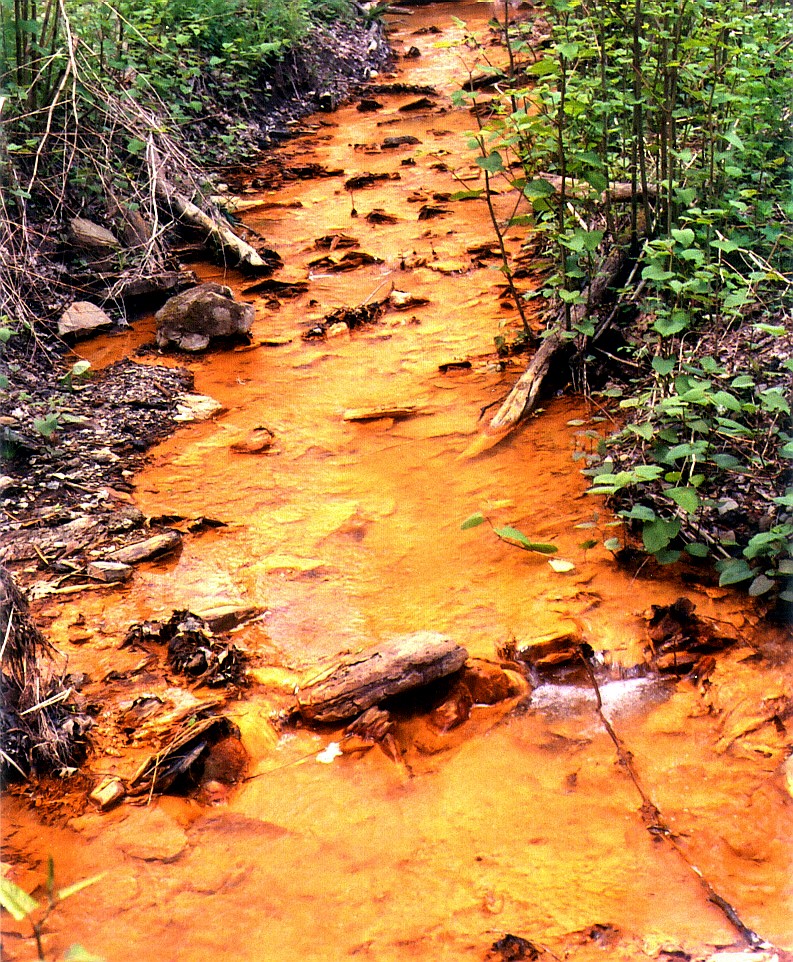 Acid Mine Drainage
Acid Mine DrainageHuman impacts on rivers know no regional boundaries. River systems in the North, South, East, and West are all impacted by human actions. Coal mining, acid mine drainage, copper mining, sewage, etc. Its amazing there are any fish left at all!!!!
For the list of the ten most endangered rivers, click here.




